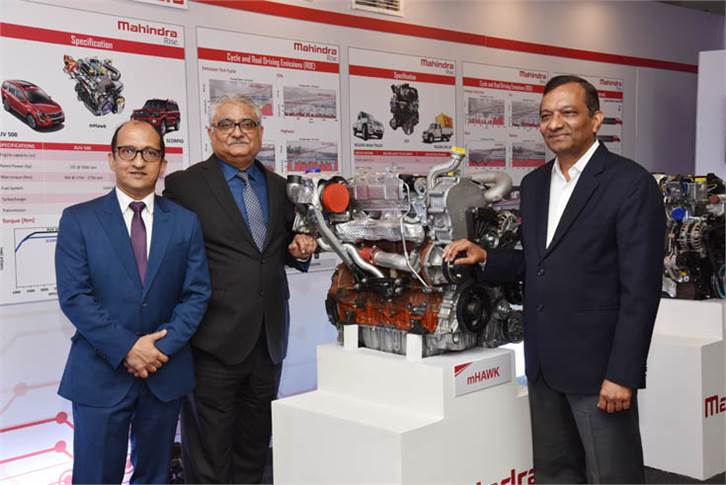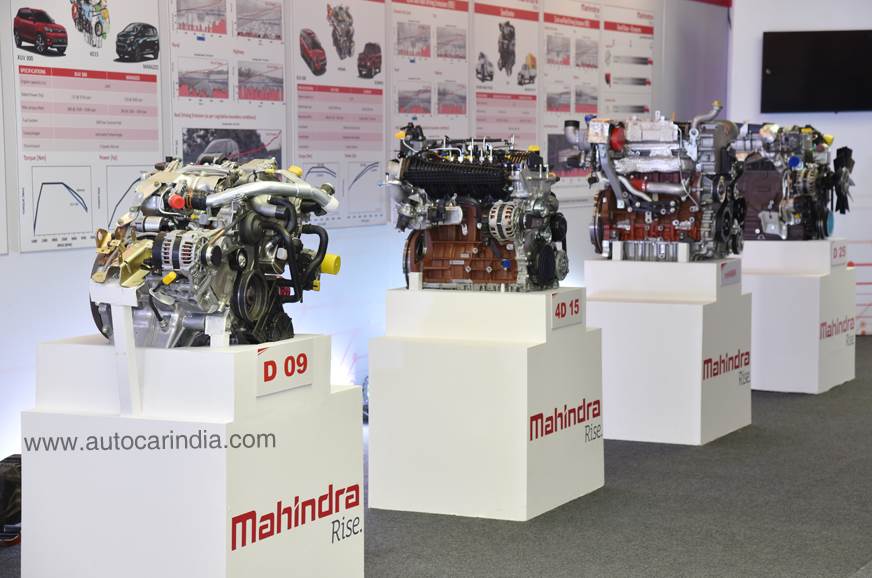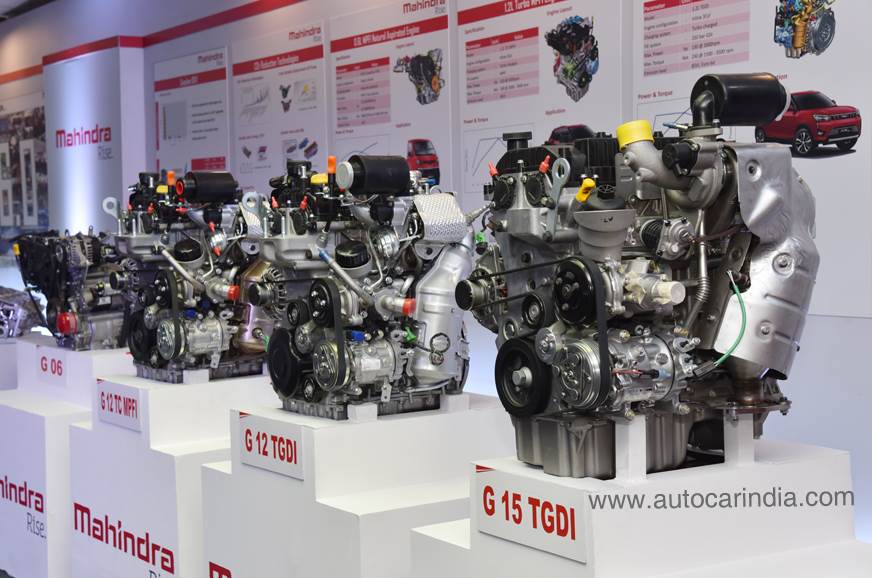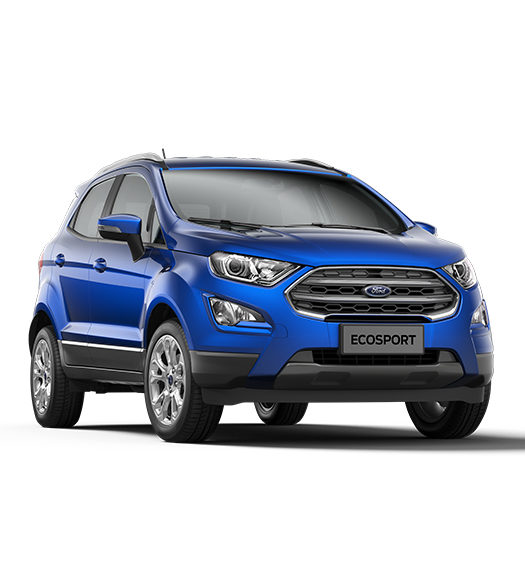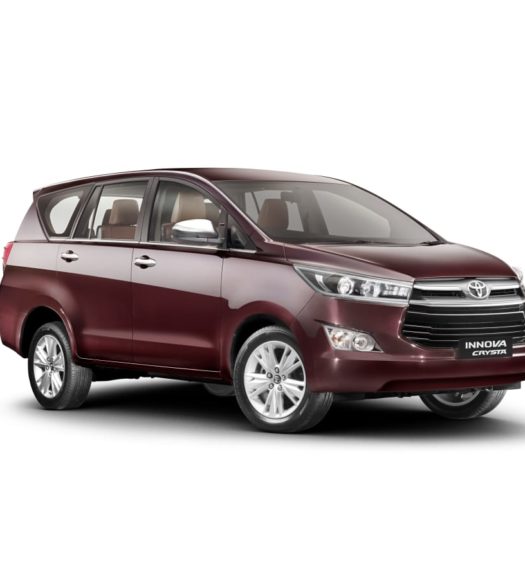Mahindra recently made all its developments around the BS-VI norms public in a recent press event. The developments were centred around key questions concerning issues such as timely availability of OEM parts, the overall increase in costs and degree of localisation.
The BS-VI norms shall have more impact on diesel engines than their petrol counterparts, and many automakers have made adjustments to their product line up accordingly. Mahindra took this opportunity to showcase its new line up of engines that shall underpin all their products from now on.
Featuring in the diesel line up are seven of the eight engines that have been powering all Mahindra’s vehicles. These have been updated to meet BS-Vi standards, and while the 1.2-litre 3-cylinder engine has been discontinued, it might be brought to life again, should the demand arise. This has not been discussed, but Mahindra has teased the engine by calling it ‘Future’. The diesel engines will range from 600cc that does duty in the light commercial vehicles to the mighty 2.5-litre that powers the Bolero. The 7 engines will be available in a total of 9 variations all of which are turbocharged and come connected to different types of catalytic converters and filters to control emissions. Mahindra’s managing director also claimed that while diesel engines will become expensive, they will not become unaffordable.
Following the trend is a lineup of 4 petrol engines too, available in both naturally aspirated and turbocharged formats. They range from a 600 cc engine and go up to a 1.5-litre setup, spread across 5 states of tune in total. Similar to the discontinued 1.2-litre diesel engine doing duty in the KUV100, an updated version of the naturally aspirated 1.2-litre petrol variant has been teased under the same name ‘Future’.
Mahindra’s managing director Dr Pawan Goenka lauded efforts taken by the respective engineering teams and stated that the onus of getting BS-VI ready has now shifted from the engineering department to the commercial team and the associated petroleum industries as all the updated engines will need to be tested with the new fuels having more refinement. He also released impressive figures in terms of localisation (up to 99%) and a strong network of 125 vendors and 32 technology providers.
Diesel engines have been the lifeline of Mahindra’s product portfolio and it is only natural that they invest extensively in upgrading diesel engines in a time when other automakers have eliminated diesel options altogether.

